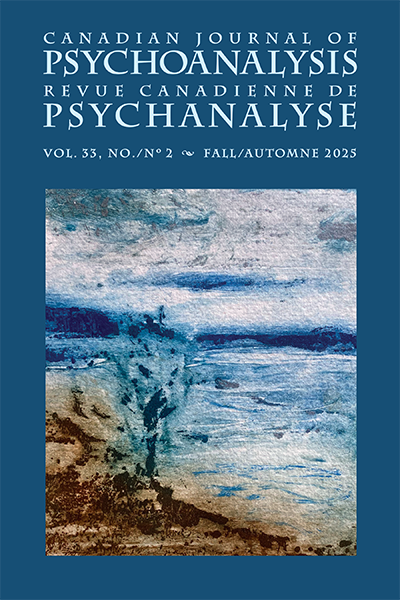To submit a paper
Manuscripts for publication must conform to certain formal requirements, given below. The author must confirm that the paper is not being considered for publication elsewhere, and must disclose any previous publication. The author must also confirm that the manuscript contains no potentially libellous matter and involves no potential infringement of copyright.
Authors warrant that they have taken appropriate measures to preserve confidentiality and protect patient anonymity within the ethical framework of the psychoanalytic profession (or of their own profession). Sharing and publication of anonymous clinical material continues to be essential to the growth of individual analysts as well as to the advancement of the analytic profession as a whole. Yet the need to communicate our clinical experiences complicates the ethical requirement to preserve the confidentiality of the clinical encounter. There is no perfect solution to this dilemma, but there exist several time-honoured approaches to preserving confidentiality and to protecting the anonymity of the patient (and the privacy of anyone else involved), while maintaining the scientific integrity of a clinical publication: disguise, patient consent, the process approach, the use of composites, the use of short clinical vignettes or of thumbnail sketches that can bring the clinical material alive while they avoid the detailed disclosures entailed in traditional case presentations.
Each approach has its own set of problems, and the method of preserving confidentiality must be chosen by the author on clinical considerations, and therefore tailored to the individual case (see Gabbard, International Journal of Psychoanalysis, 81, 1071–1086, for a discussion of the specific set of problems generated by each approach).
Authors are encouraged to carefully consider these alternatives when they prepare their manuscripts, and to give precedence to clinical concerns. They should also bear in mind that in this era of electronic publishing, which broadens the circulation of psychoanalytic papers beyond the traditional scope of professional or “learned” societies, any patient (or relative of the patient) may have easy access to what has been written.
Language
Manuscripts may be submitted in either English or French and will be published in the language of submission. They should not normally be more than 7000 words in length, including a summary, notes if any, and reference list.
Papers must include a summary or résumé of about 150 words: This should be a précis of the paper, which will enable a prospective reader to grasp the chief points the writer wishes to communicate. A translation or paraphrase should be provided in the alternate language.
Manuscript format: All manuscripts must be submitted electronically, in a Microsoft Word document, as an email attachment to cjprcp1992@gmail.com and to brunet.louis@uqam.ca in cc.
Stylistic conventions: The CJP/RCP uses those of the American Psychological Association.
References: Should be made to works cited.
Citations in the text:
(Author 2005, p. 00).
Reference list: Works cited in the text.
Author, A. N. (2007). Title of book (3rd ed.). City: Publisher.
Author, N. (2007). Title of paper. Canadian Journal of Psychoanalysis, 11, 3–14.
Author, T. H. E., & Secondauthor, B. (2007). Title of book. City: Publisher.
Author, Y. Z. (2007). Title of article or chapter. In T. H. Editor (Ed.),Title of collection (pp. 332–365). City: Publisher. (Original work published 1900).
Editor, A. N. (Ed.). (2007). Title of book (3rd ed.). City: Publisher.
Freud, S. (1961). The ego and the id. Standard edition (Vol. 19, pp. 3–66).
The text is single-spaced; uses a 12-point font; employs italics, rather than underlining (except with URL addresses); and all illustrations, figures, and tables are placed within the text at the appropriate points, rather than at the end.
Peer Review Process
Papers will be anonymously sent to two reviewers and the Editor will transmit the decision and recommendations to the author.



